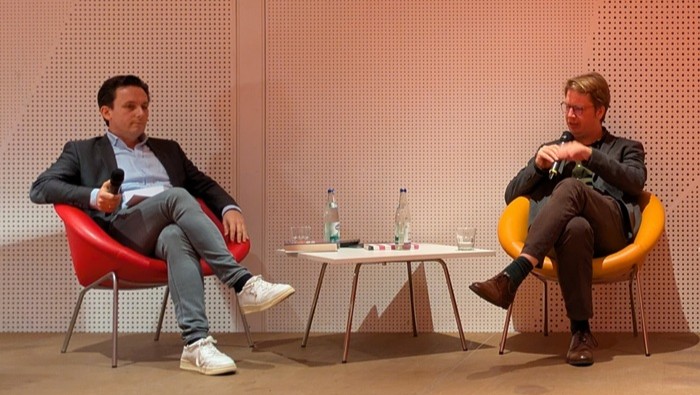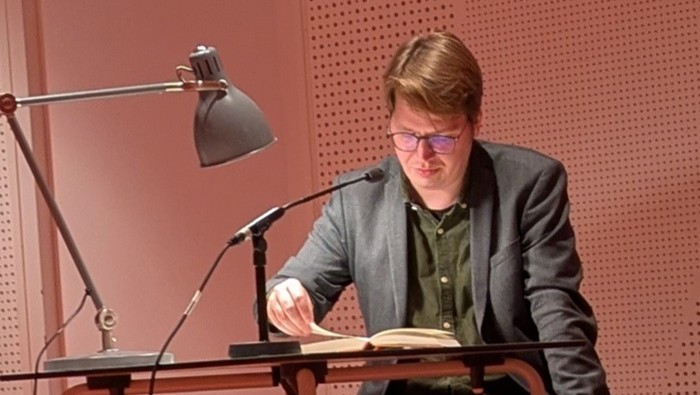Boredom as a fundamental aesthetic experience?
“Yawn-inducing,” “dead boring,” “boring to death,” “very tough going,” and “terribly boring”— these are the judgments Johannes Franzen quoted from reviews on digital platforms like Goodreads. But the text that is so reviled here is an undisputed classic of German literary history: Theodor Fontane's Effi Briest. Even as Franzen unraveled this in a first reading from Wut und Wertung (published by S. Fischer in 2024), one could sense contrasting reactions in the audience: relieved agreement on the one hand, a certain indignation on the other.
This made the discussion that ensued about such criticism of classics all the more interesting and enlightening. Johannes Franzen discussed with Stephanie Waldow, spokesperson for the Elite Graduate Program “Ethics of Textual Cultures”, and Matthias Löwe, holder of the Chair of Modern German Literature in Augsburg, about possible reasons for this: Could it be that the fact that the reception of famous works is often not entirely voluntary — think of school or university reading lists — plays a role in how they are evaluated? Does the label “classic” sometimes prevent us from approaching a text without prejudice? How do the value attributions that form a canon come about in the first place? Who actually decides, and with what authority, which art remains visible over centuries and which does not?
Artistic freedom between provocation and heroic narrative
In a second reading, Johannes Franzen recalled the debate surrounding Eugen Gomringer's cuidad (avenidas). The poem adorned the facade of the Alice Salomon University in Berlin. Arguing that the text presented a male gaze towards women, a student petition demanded that it be removed from public space. In the ensuing heated controversy, the students were accused of censorship and “barbaric nonsense.” In response, a powerful alliance of cultural journalists and authors formed, claiming to defend artistic freedom from the students. On stage, there was agreement that such disputes needed to be viewed in a more nuanced way. After all, this was also a case of what could be called “phantom censorship.”
In the end, it became clear that considerations about anger and judgment also raise many questions of ethics and aesthetics that have long preoccupied the program: those who argue about taste are implicitly also arguing about questions of morality.
Text: Elite Graduate Program “Ethics of Textual Cultures”



